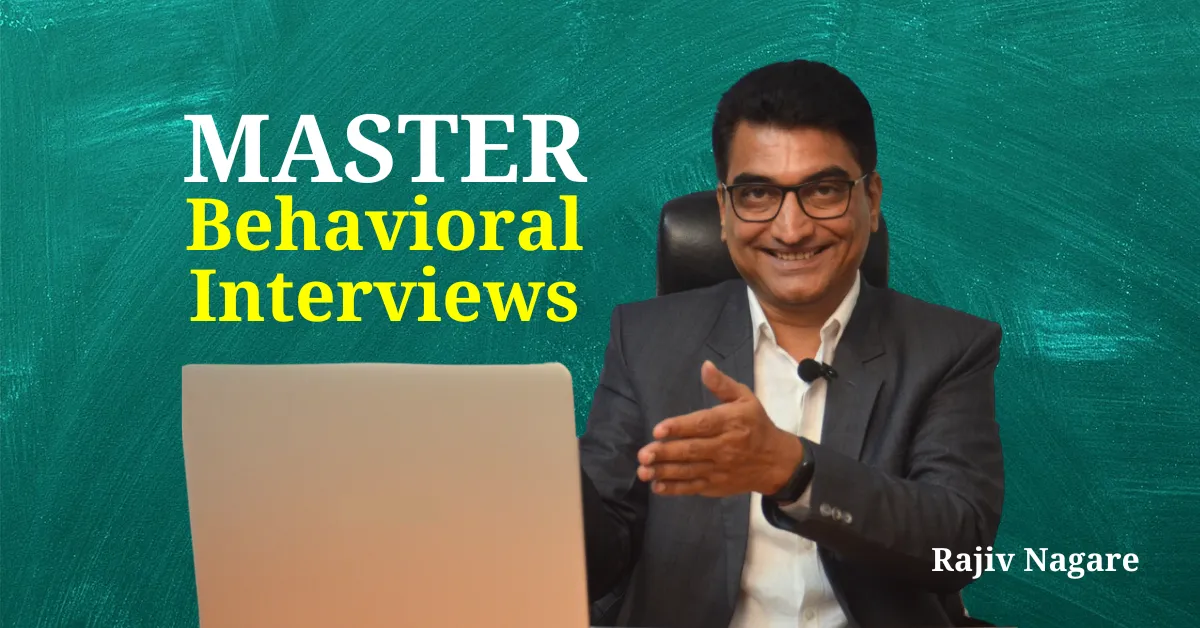How do I prepare for a behavioural interview?
In today's competitive job market, mastering interview skills is crucial for young employed individuals in India aiming to advance their careers. Whether you're preparing for your first job interview or seeking to elevate your current position, understanding and applying effective interview techniques can significantly enhance your chances of success. This comprehensive guide explores essential strategies tailored to the unique needs of young professionals in India, covering everything from interview preparation to post-interview follow-up.

Mastering interview skills is not just about securing a job; it's about positioning yourself for long-term career growth. Interviews serve as gateways to new opportunities, offering a platform to showcase your skills, experiences, and potential contributions to prospective employers. This article delves into practical tips and proven strategies that will empower you to ace interviews with confidence and professionalism.
Understanding Different Types of Interviews
Before diving into interview preparation, it's crucial to understand the various interview formats you may encounter:
Behavioural Interviews
Focus on past behaviour to predict future performance. Employers seek specific examples demonstrating your skills and competencies.
Technical Interviews
Assess technical knowledge and problem-solving abilities relevant to the job role, common in fields like IT and engineering.
Panel Interviews
Involve multiple interviewers assessing your suitability for the position from different perspectives.
Each interview type evaluates distinct aspects of your qualifications, requiring tailored preparation strategies to effectively showcase your strengths.
Preparing Effectively Before the Interview
Successful interviews start with thorough preparation:
Researching the Company
Gain insights into the company's culture, values, recent achievements, and industry position. Understand the job requirements and align your skills and experiences accordingly.
Anticipating Interview Questions
Prepare responses for common interview questions such as "Tell me about yourself," "Why do you want to work here?" and "What are your strengths and weaknesses?" Tailor your answers to highlight relevant achievements and skills.
Crafting a Strong Interview Introduction
The "Tell me about yourself" question sets the stage for the interview:
Crafting Your Pitch
Develop a concise yet compelling introduction that highlights your professional journey, key accomplishments, and career aspirations. Emphasize skills directly relevant to the job role and company culture.
Demonstrating Technical Proficiency
For roles requiring technical expertise, such as IT and ITES:
Showcasing Technical Skills
Provide specific examples of technical projects or achievements that demonstrate your proficiency. Explain complex concepts clearly and concisely to showcase your technical knowledge.
Navigating Behavioural Questions
Behavioural questions require structured responses using the STAR method:
Understanding STAR
Structure your answers by describing the Situation, Task, Action taken, and Result achieved. Use concrete examples to illustrate your problem-solving abilities, leadership skills, and teamwork.
Managing Stress and Nervousness
Interview nerves are common but manageable:
Staying Calm
Practice relaxation techniques such as deep breathing and visualization to reduce anxiety. Prepare thoroughly to boost confidence and handle unexpected questions calmly.
Mastering Virtual Interviews
With the rise of remote work, virtual interviews are becoming increasingly common:
Setting Up Your Environment
Choose a quiet, well-lit space with minimal distractions. Test your technology in advance to ensure seamless communication.
Engaging Effectively
Maintain eye contact, speak clearly, and demonstrate enthusiasm through your voice and gestures. Treat virtual interviews with the same professionalism as in-person meetings.
Negotiating Salary and Benefits
Navigate salary discussions with confidence:
Researching Market Rates
Research industry standards and local market rates for the job role. Prepare to discuss your value and contributions to justify your salary expectations.
Effective Negotiation
Clearly articulate your desired salary range and benefits while remaining flexible. Focus on mutual benefits and long-term career growth within the organization.
Leveraging Emotional Intelligence (EQ) in Interviews
Soft skills play a crucial role in interview success:
Demonstrating EQ
Showcase empathy, adaptability, and effective communication skills. Provide examples of how you've resolved conflicts, collaborated with teams, or managed challenging situations with emotional intelligence.
Post-Interview Follow-Up
Finish strong with a professional follow-up:
Sending Thank-You Notes
Express gratitude for the opportunity and reiterate your interest in the position. Personalize your message and include specific aspects of the interview that resonated with you.
Maintaining Communication
Follow up if you haven't heard back within the expected timeframe. Stay polite and professional to leave a positive impression regardless of the interview outcome.
Mastering interview skills is a continuous journey that requires preparation, practice, and confidence. By implementing the strategies outlined in this article, young employed individuals in India can significantly enhance their interview performance, impress potential employers, and advance their careers. Remember, every interview is an opportunity to learn and grow, paving the way for future success.
Have questions about interview preparation or want to share your experience? Comment below and let's discuss how you can ace your next interview and advance your career!
